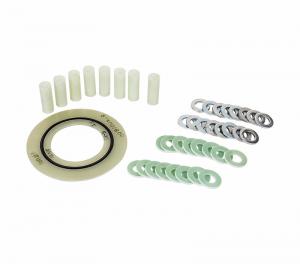Blog Information
- Posted By : xinjia shaoxing
- Posted On : Aug 31, 2021
- Views : 262
- Category : General
- Description : The correctly selected and installed spiral wound gasket can withstand high temperature and high pressure, thereby preventing leakage during its expected service life.
Overview
What are Spiral Wound Gaskets?
Spiral Wound Gaskets are the most common metal gaskets used in industrial equipment. The correctly selected and installed spiral wound gasket can withstand high temperature and high pressure, thereby preventing leakage during its expected service life.
Spiral Wound Gaskets consists of three parts:
Outer ring. The outer ring is made of carbon steel and is sometimes called a centering ring or guide ring. When you insert the washer into the bolt flange joint, it is used to center the washer.
Inner circle. The inner ring is a pivoting washer because it prevents the winding from bending from inside the tube. When the gasket is bent, part of it will be sucked into the pipe. From there, the fragments of the gasket will usually flow through the pipe until they become entangled in something. Usually, they are wound around rotating equipment such as pumps. The resulting chaos is called the "Bird's Nest". The inner ring can help you avoid this problem.
Sealing element. As you can guess from the name, the sealing element forms a leak-proof seal. A sealing element includes two windings and filling material. Most spiral wound gaskets in oil and gas refineries will use flexible graphite filler materials rated for high temperatures. A flexible graphite packing also allows the gasket to be more tolerant of flange distortion and joint misalignment. Polytetrafluoroethylene (PTFE) is another common filler material. PTFE Gaskets are not suitable for high-temperature applications, however. At the same time, most of the winding materials in the refinery will be stainless steel and Monel.
